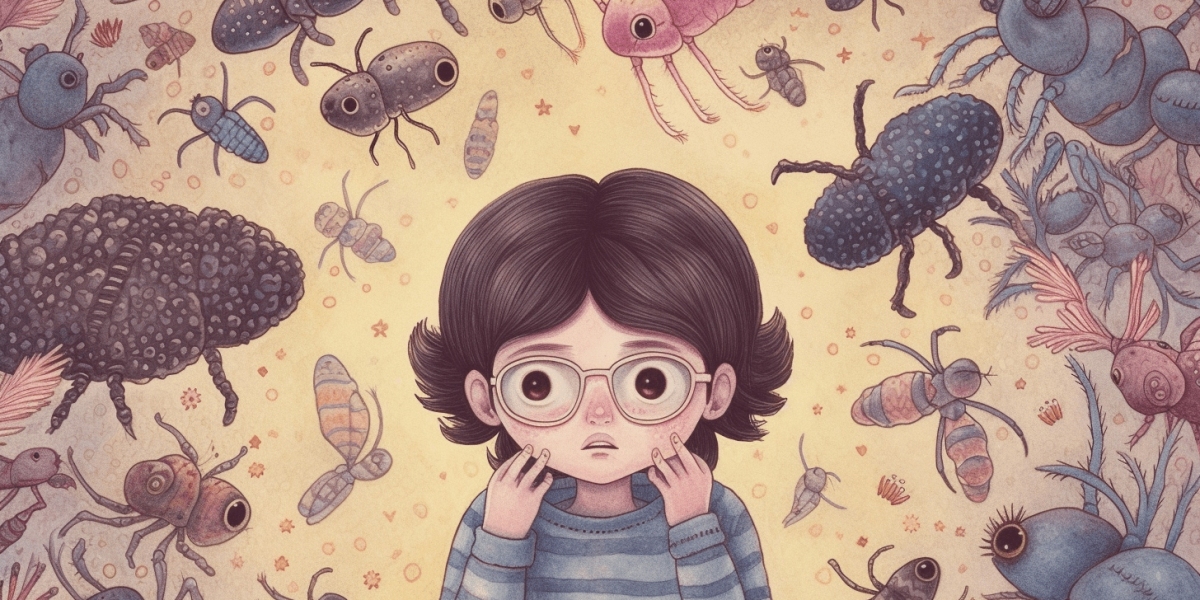Perhaps the greatest truth, the greatest constant common to every human being, is fear. Yes, you heard it right; it is ingrained in every human being on earth. But there are ways to combat them.
Modern psychologists engage themselves in the study of fear, and they have dissected it into different categories. One of them is entomophobia. We will be discussing it here.
Does the sight of cocky cockroaches roaming around your kitchen floor fill you with disgust and utter dread? When traveling to a new place, especially in the mountain areas, do you look for bedbugs like a frantic person? Then keep reading!
What Is Entomophobia?
In common psychology, entomophobia is a fear of insects. Here, people become anxious and ultra-sensitive to insects. Whenever they see the particular insect, they lose their normalcy and completely recoil in utter fear and growing tensions. The experience turned out to be highly traumatic.
You have some other variants that are associated with different insects, and they include myrmecophobia (fear of ants), acarophobia (extreme fear of tiny bugs), worm phobia, and Arachnophobia (fear of spiders). So, let's get down to the brass tacks and discuss things in perspective.
Some Other Phobias Associated With Entomophobia
Fear of insects now slowly becomes quite common with time. There may be reasons why these fears develop in an individual. Among the most practical fears include
Insensate concretization. People need to associate themselves with something other than nature but with their mobile phones.
There might be some others, too (like lifestyle changes), but this can be one of the most pronounced. Here, we study some common insect phobias that cause entomophobia.
Also read: Heart Attacks Prevented Effectively With Rosuvastatin And Atorvastatin.
1. Fear of Bugs: Acarophobia
Do you find yourself in utter discomfort and fear when discussing creepy and crawly bugs? This might be the symptom that you might be facing acrophobia. The person terribly possessed by this fear finds themselves utterly fatigued. The horror of crawling insects or even the delusion of the presence of imaginary bugs will evoke fear or even terror. Visit eminent psychology to have the entomophobia test.
2. Fear of Ants: Myrmecophobia
Myrmecophobia is the fear of ants. When someone gripped with fear sees ants moving from one place to another in a queue, terrible fear and anxiety will get him/her. They might find it difficult to live in that house. The fear of ants contaminating the food supply and uneasiness grips these people.
An interesting note: Ariel University and Bar-Ilan University suggest that short clips can help patients suffering from a phobia.
Symptoms of fear include shuddering, trembling, feeling terrified, loss of consciousness, uncontrolled weeping, excessive tension, and feeling of running away and hiding in a safe place are some of the deadly symptoms of entomophobia.
Treatment of this fear includes therapies, meditation, and others. Specific mention like cognitive behavioral therapies can be highly effective in combating fear.
3. Worm Phobia
A few people also fear worms and butterflies. General worms and butterflies are brightly colored and beautiful to look at. But sadly, it's not the same for all. Individuals who are gripped with worm phobia can find themselves in sheer discomfort.
Different therapies and meditation can be beneficial in fighting complexities. Therefore, what you need is a good awareness of it.
4. Fear Of Spiders: Arachnophobia
You have seen enough Spider-Man movies where the hero with his spider-like power fights evil. But in reality, too, they are not the most loved creatures. But some people develop high fear and discomfort even hearing the name itself. The symptoms include:
Immediate fear and anxiety are seeing and thinking about a spider.
Out of proportion fear and anxiety.
Avoidance of spiders.
Panic or anxiety response like difficulty breathing, trembling, sweating.
You can consider it one of the major variants of entomophobia. Arachnophobia may be caused by cultural or religious beliefs, family influence, evolutionary response, and even genetic and other influences.
Treatment of major entomophobia includes cognitive reframing and systematic desensitization. Self-care, deep breathing, sleep hygiene, and connecting with supportive friends and family can be highly effective in coping with the issue.
What Are The Symptoms Of Entomophobia?
Entomophobia is associated with some symptoms like discomfort with even the images of an insect. Some of the vital symptoms that help develop the feelings involve excessive or intense fear and anxiety, the immediate rise of fear, and others. Fear can even help avoid insects, such as in parks and other public places.
The fear and anxiety worsen when the insect comes close to them. These people cannot control their fears. These symptoms that have been used are mostly psychological.
Other than this, the individual is gripped with physical symptoms like dry mouth, sweating, shaking, trembling, chest tightness, crying, panic attacks, and others. These symptoms may find common ground with myrmecophobia, acarophobia, worm phobia, and Arachnophobia. But they have their sharpest of distinctions.
How Is Entomophobia Diagnosed?
Entomophobia is getting serious, so it is recommended to consult a doctor on health. Mental health professionals, like psychologists, are highly equipped to look into the matter and suggest treatment options to the care users.
According to the American Psychiatric Association's Diagnostic and Statistical Manual of Mental Disorders (DSM), entomophobia is recognized as a phobic disorder. Fear occurs when you see and think of insects.
The feelings lead you to skip parks and other public places. A person cannot attend public events and immerse themselves in loneliness. The trait triggers symptoms that do not match the actual danger. They last for six months.
Why Are You Afraid of The Bugs?
There are different causes for the development of such diseases. Let us discuss some of them here.
Traumatic Experience
People who have experienced traumatic experiences can end up developing entomophobia. If you know someone allergic to a severe reaction to a bee sting, things can be a little worse.
Environmental Irritation
Some people have highly sensitive skin, and they go on to become. Their skins get affected by pollen, mold, and household allergens. Persistent irritation can lead to developing fear and anxiety.
Family History
Please consider that your entomophobia risks may develop from other phobias or anxiety disorders. We have more; if someone listens to conversations on insects like bugs, they soon develop this kind of disease or phobia.
Treatment Of Entomophobia
It's quite understandable that these are psychological developments, and one needs to be treated accordingly.
The first thing that you need to manage is consulting an eminent psychologist. During the counseling and treatment journey, the expert provides exposure therapy.
After that, things can be better handled. So, what you need is to learn to engage yourself in intense talks on the fear of insects. The experts will help you see live insects in a controlled setting.
They will expose you to a situation where you may see insects like parks or forests. Here, you would be moving through quick discussions on:
Fear And Anxiety
Apart from the psychological training and techniques, you have some other techniques to overcome emetophobia, and they include:
Medications
Certain drugs can work extremely well, and with their help, you can work on fighting anxiety and depression.
Hypnotherapy
Hypnotherapy has always been a potent solution, providing guided relaxation techniques and focused attention. It can help you alter your perceptions of insects.
Cognitive Behavioral Therapy
Cognitive behavioral therapy, or CBT therapy, helps you bring in the changes you need to address. Many healthcare providers use CBT along with exposure therapy. The duo can be highly effective.
Yoga And Meditation
Yoga and meditation are regular practices that can help you relax and reduce stress and anxiety. They can help you focus on your breathing. Yoga has always been considered a direction to holistic development; it can help you calm down your body and control your panic attacks.
Cognitive Behavioral Therapy
The healing journey might be slow but steady. With time, things would gradually increase. This is how things go, and you must be up and doing while moving through the entire journey. Therefore, you need good exposure, and then things can settle with time.
Putting The Discussion To A Close
A phobia is something that you can not take lightly. They have their complexities. Things can develop with time. What you need is an open approach to development.
Bank on a trusted psychologist, and you can manage things with the utmost clarity of thoughts and expressions. Therefore, you have to be quite focused so that you get entomophobia under control.
For more information visit: onlinehealthmedia.com









